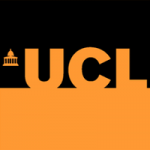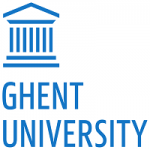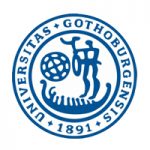项目介绍
Overview
In year one, students receive direct teaching on research methodologies and the critical evaluation of research findings. They carry out a service-related research project within their clinical placement service and attend a series of lectures on evaluating clinical interventions. From the second year trainees will undertake a research project in an area relevant to the child psychotherapy profession, fully supported by a supervisor. This programme has been created with an emphasis on the practical research skills that will be needed by a modern practitioner and designed specifically to be completed within four full-time academic years. In this integrated programme research thinking will sit alongside the clinical programme so that graduates will become able to use research to inform their clinical practice.
Research areas
About this degree
Academic Component
A continuous programme of theoretical seminars specific to each of the four years of the course is led by experienced child and adult psychotherapists. These cover theories of development, psychoanalytic thinking about the aetiology of psychological problems and how best to treat them, having regard to cultural and social diversity. The curriculum gives attention to knowledge of the evidence-base for the efficacy of psychological interventions and includes information on the impact of neuro-psychosocial factors on the psychological wellbeing of young people. There is a rolling programme of applied practice workshops, responding to current issues in NHS practice.
Clinical Course Component
Training placements are in NHS or voluntary sector settings, and the placement programme is planned to ensure exposure to a wide range of populations and contexts and to ensure experience of working in multi-disciplinary teams. Trainees are in their funded clinical placements for 70% of their week over the four years, learning and honing their skills guided by experienced clinicians within their service. In order to fulfill ACP requirements each trainee must complete a combination of intensive and non-intensive child cases. Each trainee sees three children in intensive psychotherapy, with individual weekly supervision for each case. Trainees are also required to see at least six children in non-intensive treatment, and to have experience of time-limited work, work with parents, diagnostic assessments and of consulting to other professionals who are working to promote children’s wellbeing.
The dissertation will be submitted at the end of the fourth year of study. A viva voce examination will normally be arranged within three months of submission of the dissertation.
Dissertation:
Volume 1: Case reports and Service-Related Research – 20,000 words
Volume 2: Research Dissertation – 20,000 words
All trainees are required to be in personal psychoanalysis with an approved therapist, at least four times per week throughout their training.
Please note that the list of modules given here is indicative. This information is published a long time in advance of enrolment and module content and availability is subject to change.
Placement
The clinical training is funded and quality assured by Health Education England (HEE), via the Local Education and Training Boards (LETBs). A limited number of training posts are offered by the NHS, for which trainees can apply. The posts are four-year fixed term training contracts, usually based in a Child and Adolescent Mental Health Service (CAMHS) team, and provide funding (including salary and contributions to training expenses), time for study and training as well as the opportunities to meet all the clinical requirements of the training. There are a number of posts across London and the South East of England.
Additional costs
For more information on additional costs for prospective students please go to our estimated cost of essential expenditure at Accommodation and living costs.
Accessibility
Details of the accessibility of UCL buildings can be obtained from AccessAble accessable.co.uk. Further information can also be obtained from the UCL Student Support & Wellbeing team.
Funding
The clinical training is funded and quality assured by Health Education England (HEE), via the Local Education and Training Boards (LETBs). A limited number of training posts are offered by the NHS, for which trainees can apply.
The posts are four-year fixed term training contracts, usually based in a Child and Adolescent Mental Health Service (CAMHS) team, and provide funding (including salary and contributions to training expenses), time for study and training as well as the opportunities to meet all the clinical requirements of the training. There are a number of posts across London and the South East of England.
Scholarships relevant to this department are displayed below.
UCL Research Opportunity Scholarship
Value:UK rate fees, a maintenance stipend, conference costs and professional development package (3 years)Eligibility:UKCriteria:Based on both academic merit and financial need
For a comprehensive list of the funding opportunities available at UCL, including funding relevant to your nationality, please visit the Scholarships and Funding website.
Careers
On completion of the Doctorate, applicants are eligible to work in the NHS or voluntary sector as child psychotherapists accredited by the Association of Child Psychotherapists. Some continue with academic and research work in parallel with this.
Why study this degree at UCL?
The programme combines working in a clinical setting, with lectures and seminars to support academic development and the opportunity to complete a doctoral level research project. Teaching is offered in a small-group setting and aims to provide a thorough understanding of normal child development, childhood psychopathology and psychotherapeutic techniques linked with direct experience of clinical work and conducting relevant research.
The programme is a collaboration between UCL, the Anna Freud National Centre for Children and Families and the Independent Psychoanalytic Child and Adolescent Psychotherapy Association (IPCAPA) at the British Psychotherapy Foundation (bpf), alongside NHS training placement providers. The theoretical orientation of the training represents the thinking of the Independent School within the British Psychoanalytic movement. A Jungian pathway has been developed for those in Jungian analysis.
Department: Division of Psychology & Language Sciences
Application and next steps
Applications
Students are advised to apply as early as possible due to competition for places. Those applying for scholarship funding (particularly overseas applicants) should take note of application deadlines.
This programme requires two references. Further information regarding references can be found in our How to apply section.
Application deadlines
All applicants30 July 2021
Normally applications open in September/October and the deadline is January. Please contact the British Psychotherapy Foundation for further information.
Those seriously interested in undertaking this doctorate are advised to make contact with the Training Co-ordinator – to discuss their individual experience at an early stage.
For more information see our Applications page.
录取要求
-
Applicants must have an upper second-class Honours degree (or equivalent) and/or a Master’s degree from a UK university in a relevant subject. There are a number of additional criteria, laid down by the Association of Child Psychotherapists (ACP), which applicants must fulfil before they can apply to this doctoral clinical training.
联系方式
电话: +44 (0) 20 7679 2000相关项目推荐
KD博士实时收录全球顶尖院校的博士项目,总有一个项目等着你!






